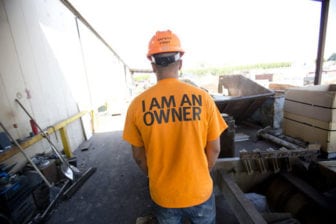March 6, 2011; Source: Crain's Detroit Business | In Detroit, Southwest Housing Solutions, a longtime nonprofit housing developer, has created Southwest Lending Solutions – in the form of an L3C – to be a low-profit mortgage originator. Southwest Lending hopes it will be able to attract investment enabling it to originate its own mortgages within two years.
Michigan is one of the increasing number of states that has authorized the creation of low profit limited liability corporations, or L3Cs. We have frequently written about L3Cs in the NPQ Newswire (here, here, here, here, and here) as well as in the Nonprofit Quarterly magazine. And few topics generate as much reader comment as Newswires that raise questions about this emerging "hybrid" form of charitable endeavor, particularly the questions of what constitutes a "socially beneficial" purpose for qualifying as an L3C and what does "low profit" really mean?
The target population of the new L3C would be home purchasers (not people aiming to refinance) with credit scores of 620 and above. By gearing up for moderate and low-income Detroit neighborhoods, Southwest Lending would, in theory, attract conventional lenders back to the city. As an L3C, Southwest Lending is aiming for foundations' program related investments to help reach even lower-income home purchasers.
Sign up for our free newsletters
Subscribe to NPQ's newsletters to have our top stories delivered directly to your inbox.
By signing up, you agree to our privacy policy and terms of use, and to receive messages from NPQ and our partners.
Why create Southwest Lending as a for-profit, albeit with a social mission and limited profit, as opposed to a nonprofit? The reason isn’t clear, since the parent organization appears to be a nonprofit. However, the new L3C wasn't formed sui generis. It was launched in January of 2011 with $331,000 in grants from the Detroit office of the Local Initiatives Support Corporation, Fannie Mae, NeighborWorks America, and Enterprise Detroit.
This new L3C is worth watching. The parent organization was named "best managed nonprofit" in 2005 by Crain's Detroit. The funders like LISC (where this author once worked) and NeighborWorks are legitimate and credible. Will the L3C status make Southwest Lending Solutions into a success in the troubled Detroit housing market beyond what a nonprofit version might have accomplished?—Rick Cohen













